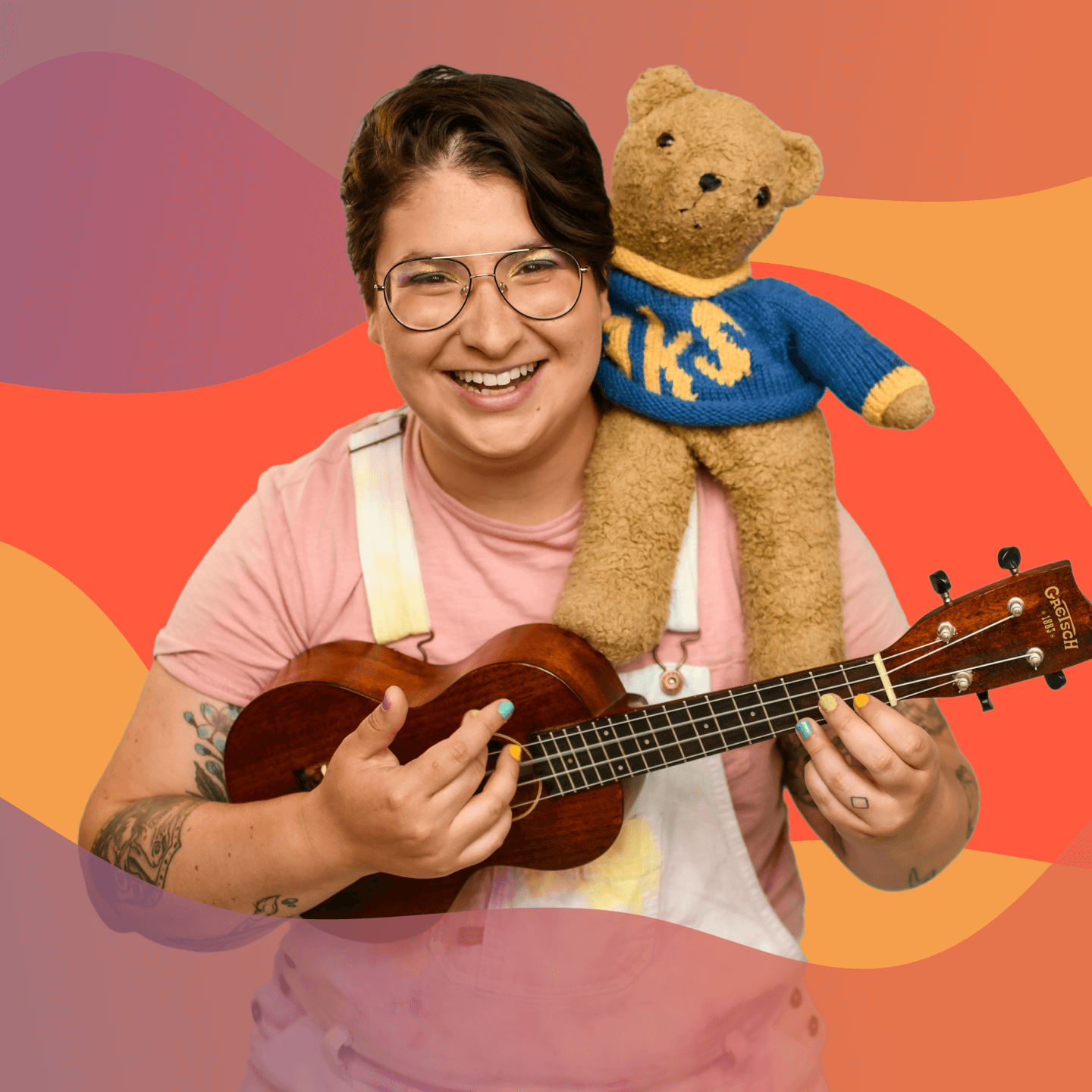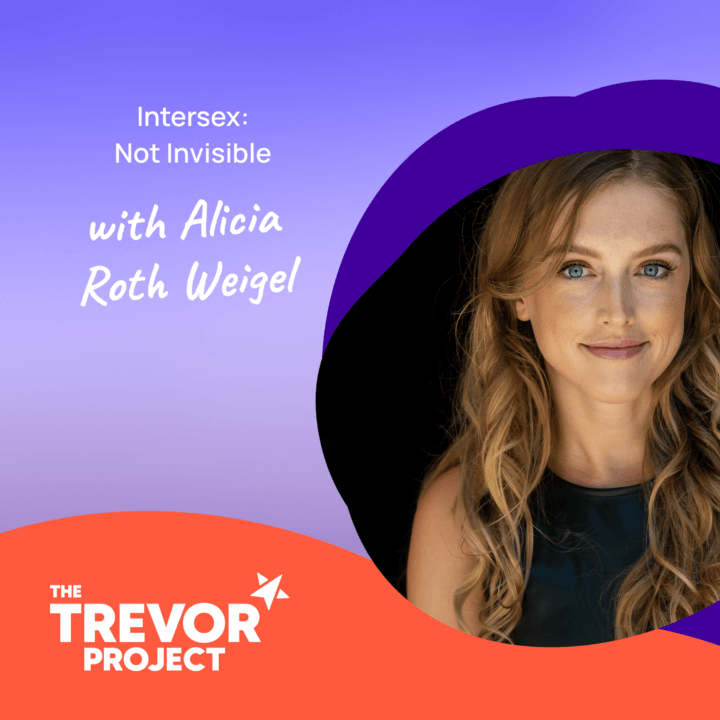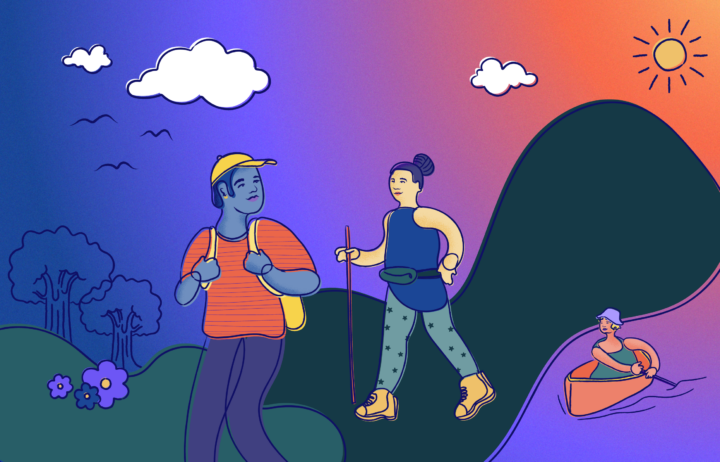Lindsay Amer is an American LGBTQ+ activist, YouTuber, and author of “Rainbow Parenting: Your Guide to Raising Queer Kids and Their Allies.” Amer created and hosts Queer Kid Stuff, a YouTube channel directed at children and focused on LGBTQ issues. Amer has been recognized by GLAAD, the TED Conference, and the Webby Awards for their work relating to LGBT education and advocacy.
1. What inspired you to write Rainbow Parenting?
First and foremost,the book is a culmination of about a decade of experience in making LGBTQ+ media and in queer storytelling for kids and families. I gave a TED Talk on the importance of talking to kids about gender and sexuality in summer of 2019 communicating the importance of my work for kids to adults, and it seemed to strike a chord.
The more clinical story of the book is that I worked with my literary agent to develop a proposal for a nonfiction book based on the TED Talk and it eventually morphed into a parenting book! But on a more cultural note, I come up against gatekeepers again and again as I’m trying to push my work out into the world. What I do is rather polarizing and getting adults over their internalized biases is a huge hurdle to giving young folks access to what I do.
When approaching the prospect of a book, I realized that I had an opportunity to approach those gatekeepers (parents, educators, caregivers, etc) and hand them basically 200+ pages of my brain dump from the last decade of experience. So, on a macroscale, I wrote it to help spur some sorely needed cultural change around raising children in a queer and gender-affirming way. But on a more microscale, it’s the book I wish my parents had when they were raising me.
2. You talk about this book creating more empathetic adults – what is the best way to help adults be more empathetic and understanding to LGBTQ young people?
Empathy is not inherent, it’s a muscle we have to exercise regularly. Teaching empathy to children is easy, especially through live performance, stories, and characters! It’s a bit trickier with adults. What works best is getting adults to understand that they know (and at the very least have certainly interacted with) queer and trans people throughout their lives, whether they knew it at the time or not. Statistically speaking, LGBTQ+ people are everywhere. So getting adults to understand their personal connections to the LGBTQ+ community is one part of it.
The subtitle for the book (Your Guide to Raising Queer Kids and Their Allies) is incredibly purposeful because this isn’t just about raising queer kids, it’s about raising allies too. And if we’re talking about queer kids AND their allies, then aren’t we talking (theoretically) about all kids?
Any kid could turn out to be trans and queer, just like any kid could grow up to be an astronaut, or a teacher, or a president. When parents understand that they are making assumptions about their child’s gender and sexuality in utero, it doesn’t take long to make the connection.
3. Are there any misconceptions about being a supportive parent or ally?
There are a lot of misconceptions right now about the LGBTQ+ community and work like this. The anti-trans and anti-queer surge in conservative legislation has put out so much misinformation on our community. The strongest anti-queer and anti-trans bias around children is that talking about or exposing children to LGBTQ+ topics and stories and even people 1) turns them gay or trans, 2) brainwashes them, 3) that being gay is a choice/disease, and 4) sexualizes them. These stigmas point blank untrue and have deep roots in anti-gay legislation and AIDS-era rhetoric and conservative politicians are working to further solidify these biases. These misconceptions are huge obstacles to anyone who is working to be a supportive parent or ally to queer and trans young people.
4. Do you have any personal stories about the impact of supportive adults or parents on your journey?
My own parents really have done a lot of work to understand who I’ve become, my work, and how they can support me. But we’ve definitely been on that journey concurrently. I did do a recorded conversation with my mom and my sister for my podcast and my mom spoke really beautifully about helping me out after top surgery and how much I reminded her of the really authentic spirit I had as a child that was dampened by puberty and societal expectations. But outside of my own parents, I get so many incredible messages from parents who use my videos with their kids and who have used them in their own journey of understanding.
5. What do you hope people get from your book?
Oh my gosh, so many things! The book is warm and welcoming to read, and I take great care to assure the reader that I don’t expect them to be perfect. In fact, I do expect them to make mistakes;making mistakes is okay. We should acknowledge our mistakes and work to do better, but making mistakes is so incredibly human.
The book is a parenting book technically, but it’s really the most accessible Intro to Queer Theory text you can find. I really hope it provides an accessible in-road for anyone to grasp these ideas so we can start moving forward, not backward. I hope this book starts to give readers the tools to move beyond the hashtag activism of #ProtectTransKids and helps them understand that there are ways anyone can bring queer and trans affirming actions into their day-to-day lives.
6. Young people are about to go back to school, which can be a scary time. What advice do you have for adults and allies at school?
Back to school is always rocky, but nowadays even more so. My advice is to take a deep breath and find your people. Find your allies amongst your peers, faculty, administration anywhere within the educational ecosystem. If you don’t have any allies in your immediate spaces, find folks online or in spaces outside of the school system. It is so easy to feel alone and isolated right now with everything going on. But we’re not alone, and resources do exist, and we can create our own support systems! Take a deep breath, find your people, and recognize when you need rest.
7. Do you have any affirming words for LGBTQ young people going back to school?
Honestly, I think it’s kind of the same advice! Take lots of deep breaths and find your people. I think one thing I’d add is to follow your passions. Go out for the school musical, take that pottery class you thought about all of last year. Back to school means lots of change, but it also means there’s lots of room for possibility, so don’t let that space for opportunity pass you by!
8. How can young people help adults and allies support them?
Give them a copy of my book! I put a lot of emotional labor into writing this book so that you don’t have to do all that work. You can even hire me to come talk at your school or your LGBTQ+ employee resource group. And I’m not the only one. This is a burgeoning field full of a lot of incredibly smart people. Go find them and help spread the existing resources far and wide!


